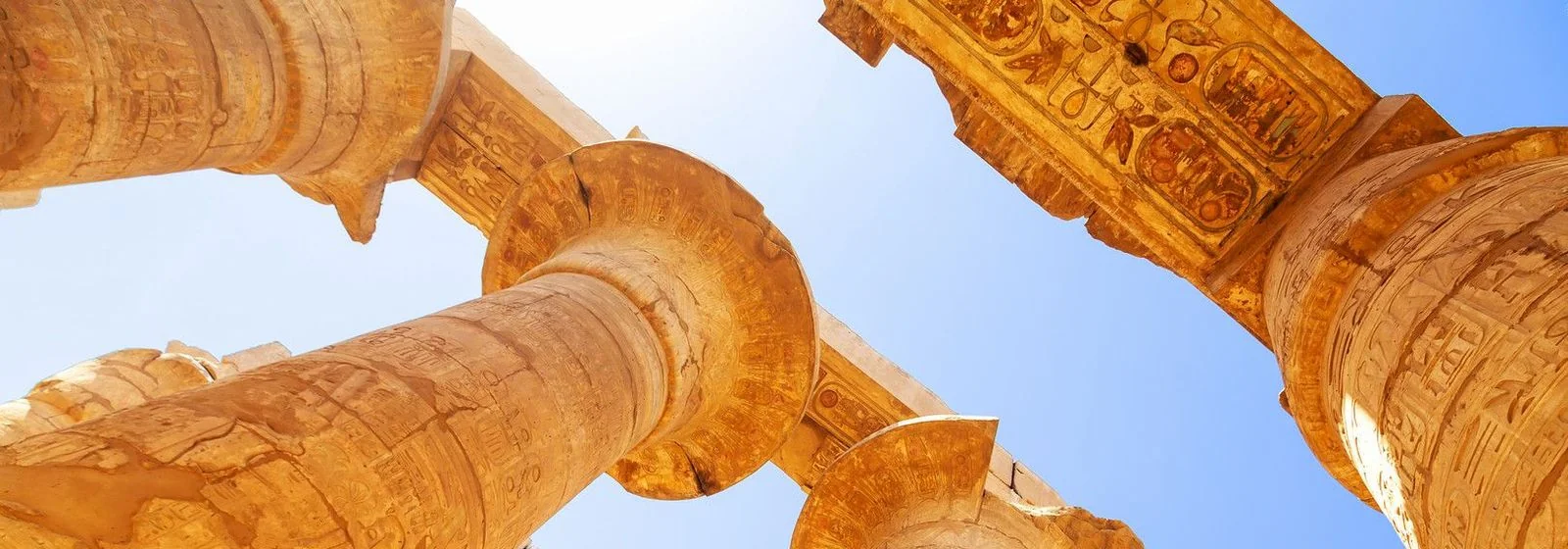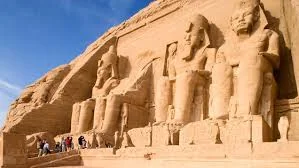
Blog Details
why is egypt so special


9 reasons why Egypt is so special:
.jpeg) Wonderful Ancient Egyptian History:
Wonderful Ancient Egyptian History:
The history of ancient Egypt is a testament to human achievement, ingenuity, . Spanning thousands of years, it saw the rise of powerful pharaohs, the construction of monumental structures like the Pyramids and temples, and remarkable advances in science, medicine, and art. Hieroglyphs reveal stories of their beliefs, daily life, and complex rituals honoring the gods. The civilization thrived along the Nile, using its waters to cultivate rich lands and build an enduring legacy.
Famous Pyramids and the Great Sphinx:
.jpeg)
The Pyramids of Giza what is so special about the great pyramid of giza and the Great Sphinx are among the most famous symbols of ancient Egypt and human history. Built during the Fourth Dynasty, the three main pyramids—Khufu, Khafre, and Menkaure—stand as impressive feats of engineering, with the Pyramid of Khufu, also known as the Great Pyramid, being the largest. These pyramids were constructed as monumental tombs for the pharaohs, representing not only their power but also their connection to the divine. The nearby Great Sphinx, carved from limestone, stands as a mysterious guardian of these grand structures. With the body of a lion and the face of a pharaoh, likely Khafre, the Sphinx embodies strength and wisdom. The precision of their construction, using enormous stone blocks, continues to puzzle and inspire, making these ancient monuments powerful symbols of Egyptian ingenuity and their vision of eternity.
The Life-Giving Nile:
.jpeg)
The Nile River, often called Egypt's lifeline, has been central to the country’s history, economy, and culture for thousands of years. Its seasonal flooding deposited fertile silt along its banks, transforming the surrounding desert into arable farmland. This natural abundance enabled the growth of one of the world’s most remarkable civilizations, supporting agriculture, settlement, and trade. The Nile provided water for crops, a transport route for goods and people, and a vital resource for everyday life. ajor cities like Thebes and Memphis thrived along its banks, taking advantage of its bounty. Beyond its economic role, the Nile held a sacred place in Egyptian mythology, revered as a symbol of creation and sustenance, with the river’s significance woven into the very fabric of ancient Egyptian identity and spirituality.
Stunning Coral Gardens of the Red Sea:
.jpeg) The Red Sea's sataya overnight with diving coral gardens are among the most breathtaking natural wonders of Egypt, showcasing vibrant marine life and vivid underwater landscapes. Stretching along Egypt's eastern coast, these coral reefs are home to an incredible diversity of species, from colorful fish to intricate coral formations. The clear, warm waters provide ideal conditions for coral growth, creating a haven for marine creatures like parrot fish, moray eels, and sea turtles. The reefs also play a crucial role in the region's ecosystem, offering shelter and breeding grounds for numerous marine species. Diving and snorkeling in these crystal-clear waters reveal a kaleidoscope of colors, with soft and hard corals forming intricate structures that attract explorers from around the world. Beyond their natural beauty, the coral gardens contribute significantly to local livelihoods, supporting fishing communities and attracting tourists.
The Red Sea's sataya overnight with diving coral gardens are among the most breathtaking natural wonders of Egypt, showcasing vibrant marine life and vivid underwater landscapes. Stretching along Egypt's eastern coast, these coral reefs are home to an incredible diversity of species, from colorful fish to intricate coral formations. The clear, warm waters provide ideal conditions for coral growth, creating a haven for marine creatures like parrot fish, moray eels, and sea turtles. The reefs also play a crucial role in the region's ecosystem, offering shelter and breeding grounds for numerous marine species. Diving and snorkeling in these crystal-clear waters reveal a kaleidoscope of colors, with soft and hard corals forming intricate structures that attract explorers from around the world. Beyond their natural beauty, the coral gardens contribute significantly to local livelihoods, supporting fishing communities and attracting tourists.
Genuine Hospitality and Welcoming Spirit:
.jpeg)
Egypt's genuine hospitality and welcoming spirit are evident in every corner of the country, reflecting a deep cultural tradition of kindness and generosity. Visitors are often struck by the warmth of the Egyptian people, who take pride in making others feel at home. Whether strolling through a bustling market, exploring historic sites, or venturing into remote villages, travelers experience the warmth of locals eager to share their culture, food, and stories. From offering tea to inviting strangers to join family meals, the acts of kindness are sincere and heartfelt. This hospitality, rooted in respect for guests and a sense of community, goes beyond mere politeness—it’s a way of life that defines the Egyptian identity. This welcoming atmosphere ensures that every visitor leaves with not just memories of the sights but also the warmth of the people, making Egypt a truly memorable destination.
Incredible Archaeological Finds:

Egypt is a treasure trove of incredible archaeological finds, offering a window into one of the world’s oldest civilizations. From the grandeur of the tombs in the Valley of the Kings to the intricate artifacts found in the tomb of Tutankhamun, the country is a living museum filled with wonders. Excavations have unearthed towering statues, elaborate temples, and everyday items that reveal the complexity of ancient Egyptian life. The discovery of the Rosetta Stone unlocked the secrets of hieroglyphics, while the recently discovered “lost golden city” near Luxor offers new insights into urban life during the reign of Amenhotep III. The Great Pyramid of Giza, with its intricate construction, still amazes historians and engineers alike. Each find not only deepens our understanding of the past but also connects us to the ingenuity, beliefs, and artistry of the people who once thrived along the Nile.
Captivating Temples:
 Egypt's captivating temples are among its most awe-inspiring attractions, showcasing the artistic mastery and spiritual devotion of ancient civilization. From the massive columns of Karnak to the finely carved reliefs of Edfu, each temple tells a story of gods, kings, and the beliefs that shaped daily life. Luxor Temple, standing majestically along the banks of the Nile, was dedicated to the rejuvenation of kingship, while the Temple of Hatshepsut, built into the cliffs at Deir el-Bahari, honors the powerful female pharaoh who led Egypt to prosperity. Abu Simbel, carved out of a mountainside, was a testament to Ramses II's strength and a monument to his beloved queen Nefertari. These sacred sites were not only places of worship but also centers for learning, culture, and community gatherings. Visiting these temples today, one can still feel the profound sense of wonder and reverence that ancient Egyptians had for their gods and rulers.
Egypt's captivating temples are among its most awe-inspiring attractions, showcasing the artistic mastery and spiritual devotion of ancient civilization. From the massive columns of Karnak to the finely carved reliefs of Edfu, each temple tells a story of gods, kings, and the beliefs that shaped daily life. Luxor Temple, standing majestically along the banks of the Nile, was dedicated to the rejuvenation of kingship, while the Temple of Hatshepsut, built into the cliffs at Deir el-Bahari, honors the powerful female pharaoh who led Egypt to prosperity. Abu Simbel, carved out of a mountainside, was a testament to Ramses II's strength and a monument to his beloved queen Nefertari. These sacred sites were not only places of worship but also centers for learning, culture, and community gatherings. Visiting these temples today, one can still feel the profound sense of wonder and reverence that ancient Egyptians had for their gods and rulers.
Sunshine Throughout the Year:

Egypt’s abundant sunshine throughout the year is one of its most defining natural features, offering a warm and inviting climate that has shaped life and culture for millennia. With clear skies and bright sunlight almost every day, the country enjoys an average of over 3,500 hours of sunshine annually. This constant sunshine is not only essential for agriculture, providing ideal conditions for growing crops like wheat, dates, and cotton, but also plays a major role in making Egypt a popular travel destination. Tourists flock to experience the sun-drenched beaches along the Red Sea, the warmth of the Western Desert, and the clear, pleasant weather that makes exploring historical landmarks comfortable for most of the year. The sunny climate is also key to the growing interest in solar energy, as Egypt harnesses its natural resources to support sustainable development. This enduring, golden sunlight contributes to the country's charm, drawing people seeking warmth and a radiant atmosphere."Extraordinary Underwater Experiences.
Extraordinary Underwater Experiences:
 Egypt offers extraordinary underwater experiences, especially along the Red Sea coast diving trip, where the vibrant marine life and stunning coral reefs create an unforgettable adventureBeneath the crystal-clear waters lies a colorful world teeming with diverse species, from schools of tropical fish to majestic sea turtles and playful dolphins. The coral formations, ranging from towering pinnacles to expansive gardens, provide shelter for an incredible variety of marine creatures, each adding to the underwater spectacle. Sites like Ras Mohammed National Park, the Blue Hole in Dahab, and the wreck of the SS Thistlegorm offer unique experiences, from exploring thriving ecosystems to uncovering shipwreck mysteries. The warm waters, excellent visibility, and rich biodiversity make Egypt a favorite destination for underwater enthusiasts. Whether you are an experienced diver or a casual snorkeler, the Red Sea’s wonders promise a mesmerizing journey into the heart of an aquatic paradise.
Egypt offers extraordinary underwater experiences, especially along the Red Sea coast diving trip, where the vibrant marine life and stunning coral reefs create an unforgettable adventureBeneath the crystal-clear waters lies a colorful world teeming with diverse species, from schools of tropical fish to majestic sea turtles and playful dolphins. The coral formations, ranging from towering pinnacles to expansive gardens, provide shelter for an incredible variety of marine creatures, each adding to the underwater spectacle. Sites like Ras Mohammed National Park, the Blue Hole in Dahab, and the wreck of the SS Thistlegorm offer unique experiences, from exploring thriving ecosystems to uncovering shipwreck mysteries. The warm waters, excellent visibility, and rich biodiversity make Egypt a favorite destination for underwater enthusiasts. Whether you are an experienced diver or a casual snorkeler, the Red Sea’s wonders promise a mesmerizing journey into the heart of an aquatic paradise.